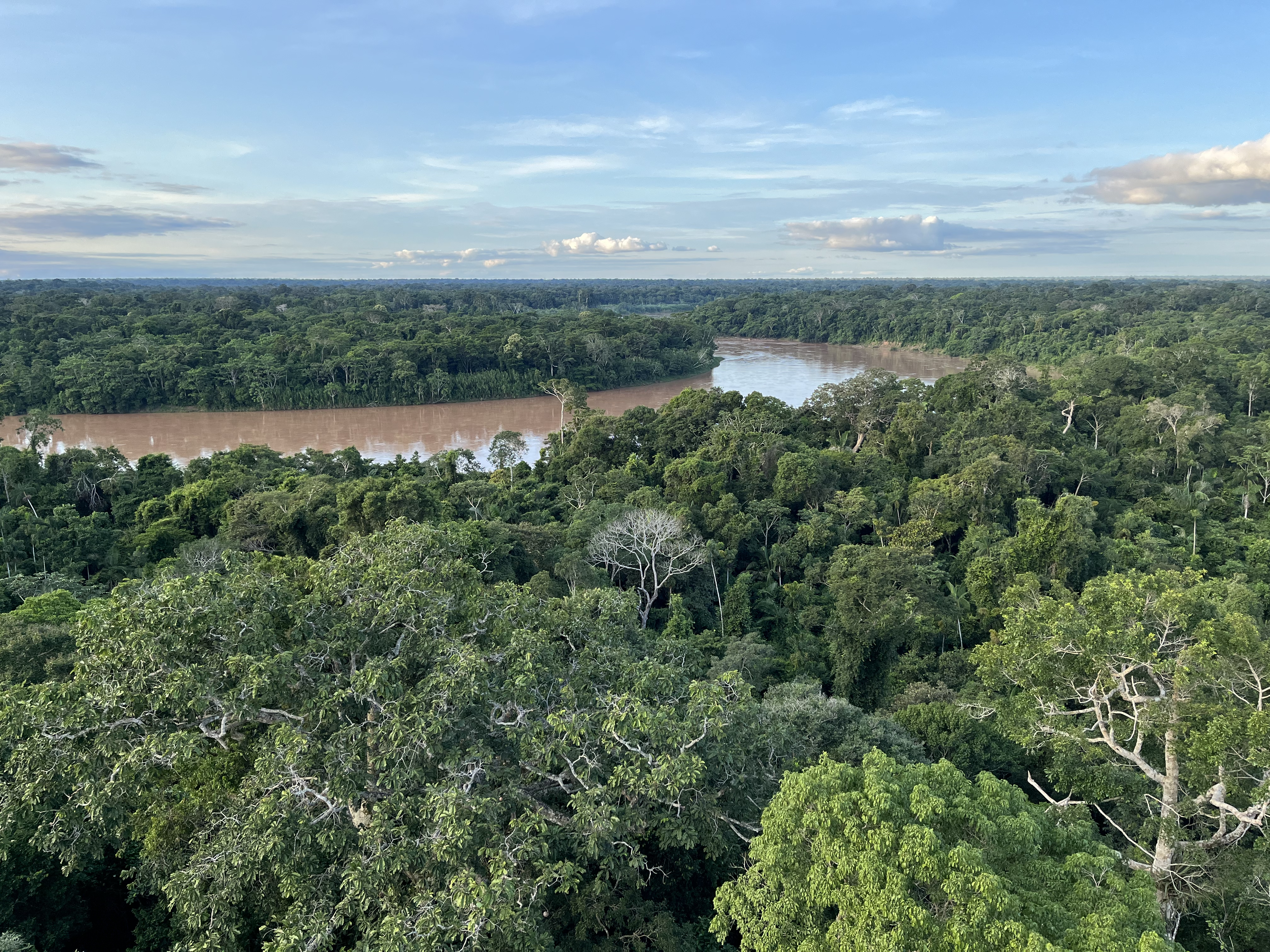Near the Tambopata River in the Madre de Dios region of Eastern Peru, an ecolodge is nestled in the jungle. It’s called the Posada Amazonas, and is an initiative of the indigenous Ese Eja community of Infierno, who use climate finance from the sale of carbon credits to support sustainable livelihoods opportunities that protect their ancestral forest.
Ecotourism is one of the community’s key economic activities, along with sustainable fish farming, indigenous handicrafts and cacao agroforestry. These programmes empower the Infierno community to establish long-term and resilient revenue streams that are based on the sustainable use of forest resources. The ecotourism lodge is a point of pride for the Ese Eja of Infierno, who craft an experience for guests centred around their unique cultural heritage and customs.
To begin with, the lodge is built entirely using responsibly sourced materials from the surrounding forest, including palm trees and other native tree species, and the wood is uniquely carved by community members. Guests are invited to observe and take part in community activities like fishing and farming, guided by members of the Infierno community. It’s an enchanting experience that delivers more than a good time to guests. It’s valuing and sharing the Infierno experience with the outside world, supporting job opportunities for the local community and incentivising the conservation of this critical, unique landscape.
The pandemic and Infierno’s ecotourism
That is why, when the COVID-19 pandemic hit, concern was immediately raised around the impact of travel restrictions on the Infierno’s ecotourism programme. Peru experienced several tough lockdowns which prevented most travel and essentially shut down the country’s tourism industry. Luckily, bolstered by its REDD+ project, implemented by the Peruvian NGO AIDER, the Infierno community was able to pivot during this time to ensure the community made it through.
During the pandemic, focus shifted to the project’s control and surveillance programme, with climate finance funnelled towards constructing checkpoints, training forest patrol staff and purchasing appropriate equipment, such as GPS and drones. Support from AIDER in the form of food supplies, healthcare equipment, education materials and agroforestry training kept the community engaged and resilient. Furthermore, leadership from the first female Infierno president mobilised the community to develop a strategy that would safeguard health and livelihoods until restrictions were over.
In 2022, the Infierno community is looking ahead to a strong year of visitors to the Posada Amazonas lodge. Already, guests are flooding in, hoping to catch up on two years of missed adventure. But more importantly, the community has shown resilience to a major crisis and proven that when given the right support, it can withstand the challenges that come its way. This is a key example of why supporting healthy diversification in REDD+ projects is essential. Communities with multiple sustainable revenue streams that utilise forest resources responsibly, are more independent from the volatility of the outside world, resilient and best poised to protect their unique heritage and the place they call home.
Contact us to learn more about our portfolio of high-quality carbon projects delivering benefits for climate, nature and people.
